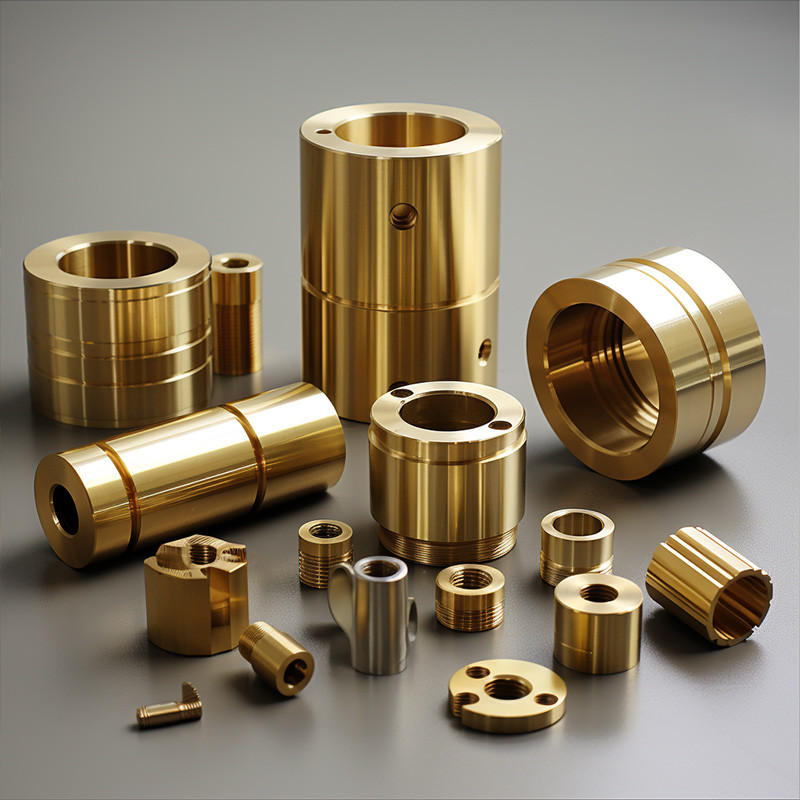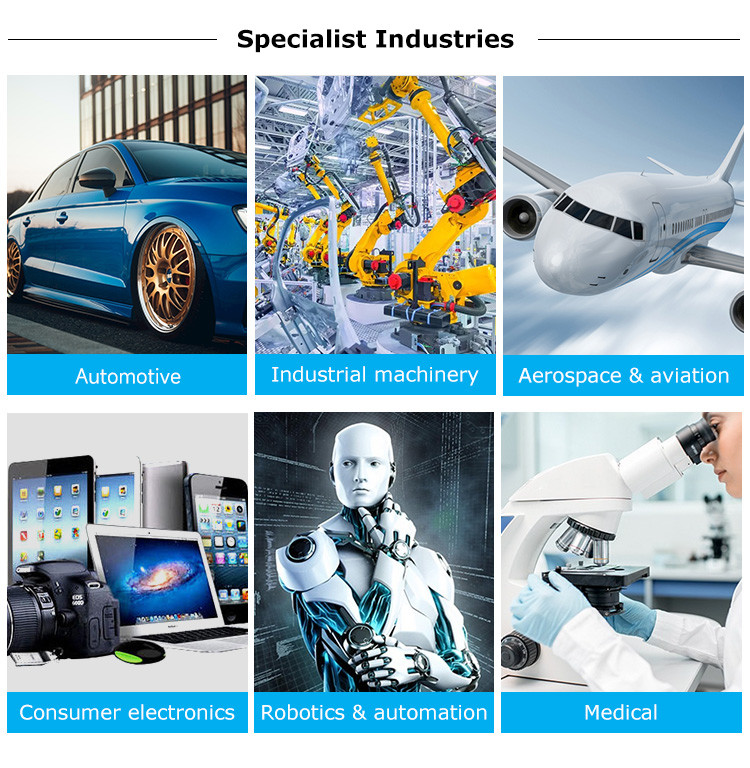Dongguan Yexin Intelligent Technology Co., Ltd. |
|
Verified Suppliers
|
|
Brass Precision Turned Components CNC Part Turning CNC Lathe Parts
Machining Service
We possess the capability to CNC machine a wide array of parts, ranging from uncomplicated
"as-machined" workholdings to intricate geometries. Our manufacturing facilities are
well-equipped with a diverse range of CNC mills and turning centers, and upon request,
we can also incorporate EDM and grinders into the process.
We offer precision with tolerances reaching as tight as 0.05 mm (0.0020 in), ensuring efficient
lead times, and providing delivery options within just 1 business days.
Product Details
Brass is a metal alloy known for its low friction properties, exceptional electrical conductivity,
and distinctive golden appearance.
This material offers good machinability, making it suitable for a wide range of applications that
demand low friction and high electrical conductivity.
| Common Brass Materials | |
| No. | Properties |
| Brass Cz121 | Brass Cz121/C360 (CNC) is a highly machinable alloy with good tensile strength and natural corrosion resistance. Ideal for parts that require low friction. |
| Brass C360 | Brass C360 (CNC) is highly machinable alloy with good tensile strength and natural corrosion resistance. Ideal for parts that require low friction. |



Brass Finishing and Post-Processing
360 Brass has a shiny yellow finish that varies depending on surface roughness.
It can be hand-polished to increase its sheen, or media blasted for more of a matte texture.
| Name | Machining Marks |
| As machined | Visible, light surface scratches |
| Smooth machining | Visible, light surface scratches |
| Fine machining | Slightly visible |
| Polishing | Removed on primary surfaces |
| Bead blasting | Removed for non-cosmetic, removed on primary surfaces for cosmetic |
| Brushing | Reduced for non-cosmetic, removed on primary surfaces for cosmetic |
| Powder coating | Removed |
| Black oxide | Visible |
Applications of CNC Brass Parts
We’ve manufactured millions of parts for all sorts of applications, but we’re especially
knowledgeable in these areas.
1. Aerospace & aviation
2. Automotive
3. Industrial machinery
4. Consumer electronics
5. Robotics & automation
6. Medical

Company Profile


FAQ's
1. A quick guide to CNC machining parameters
Machining parameters in CNC are primarily established by the machine operator during the
generation of G-code. Key parameters include the build size and accuracy of CNC machines,
distinguishing them notably from 3D printers.
CNC milling systems boast a substantial build area, with the capability to machine parts up to
2,000 x 800 x 100 mm (78” x 32” x 40”). Meanwhile, CNC turning systems specialize in
machining parts with a diameter of up to Ø 500 mm (Ø 20’’).
Precision and tight tolerances are hallmarks of CNC machining. Achieving accuracy levels
surpassing half the diameter of an average human hair (± 0.025 mm or .001’’) is well within
the capabilities of CNC machines. In the absence of specified tolerances in the technical drawing,
operators typically machine parts with an accuracy of 0.125 mm (.005’’).
2. What's the general surface texture of CNC milled and turned parts?
In the realm of CNC machining, the general surface texture of as-machined milled parts typically
exhibits a roughness of approximately 3.2μm (1.6μm for relatively new machines).
On the other hand, turned parts can achieve a finer surface with a roughness of 0.8μm.
Notably, this level of surface quality is attained without the need to adjust the machining speed.
3. Understanding CNC Machining Costs:
The cost of CNC machining a part is influenced by various factors,
including:
1. Material: The choice of material significantly impacts cost.
Machining materials like Inconel
are more expensive due to increased tool wear and slower cutting speeds compared to materials
like aluminum.
2. Complexity: Parts with complex features are more expensive to
machine. For instance,
components with intricate surface shapes incur higher costs than those with flat surfaces.
3. Tolerances: Tight dimensional tolerance requirements contribute
to higher costs.
Over-specifying tight tolerances on non-critical features can increase CNC machining expenses.
4. Surface Finish: Achieving mirror finishes demands specialized
tooling and machining strategies,
prolonging machining time and elevating costs.
5. Quantity: Low-volume production is inherently costlier per part
than large-volume production.
The higher fee stems from spreading initial setup and programming costs over fewer parts.